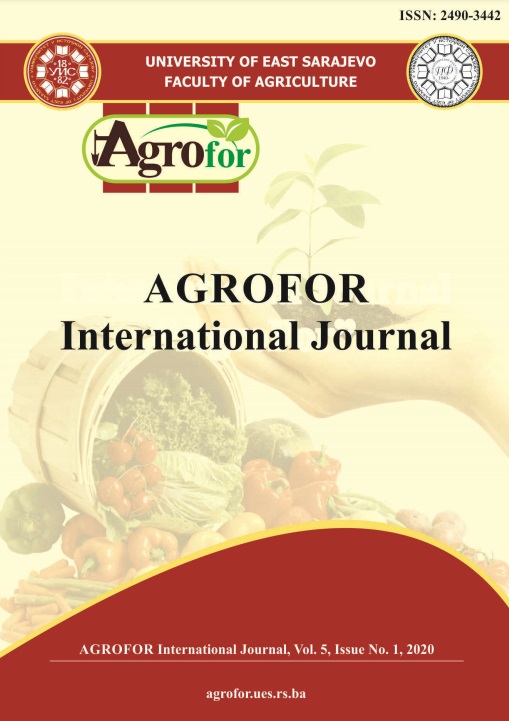THE EFFECT OF THE ORIGIN OF THE QUEEN BEES AND THEIR INTERACTION WITH SURROUNDINGS ON THE DEGREE OF VARROA INFESTATION OF A BEE COLONY
DOI:
https://doi.org/10.7251/AGRENG2001061NAbstract
Honey bee endures significant losses due to the presence of Varroa destructor mite in bee colony. Because of its wide-spread presence in bee colony it can cause its complete destruction. Different breeding programmes regarding honey bee pay a great attention to bee resistance to varroa. The trial was conducted in 27 bee colonies. Three groups of bee swarms were formed and in each there were nine queen bees originating from three mutually distant producers. Then, in three distant apiares the queen bees were placed in bee swarms so that in every apiary the queen bees of three different genotypes were represented. During 2017 and 2018, during six different periods, by a powdered sugar method the infestation of bee colonies by varroa mite was inspected. The degree of varroa infestation in relation to origin of queen bees ranged from 0.269 to 0.327 and difference determined was not statistically significant (P>0.05). In relation to a location, the least average infestation of societies accounting for 0.140 was observed in an apiary in northeastern Serbia, while the greatest infestation accounting for 0.452 was observed in colonies placed in western Serbia. Determined difference in varroa infestation in relation to a location of an apiary was statistically significant (P<0.05). Continual monitoring of the varroa infested colonies by use of powdered sugar method
indicated the differences between examined groups and reduced damage threshold for bees.

